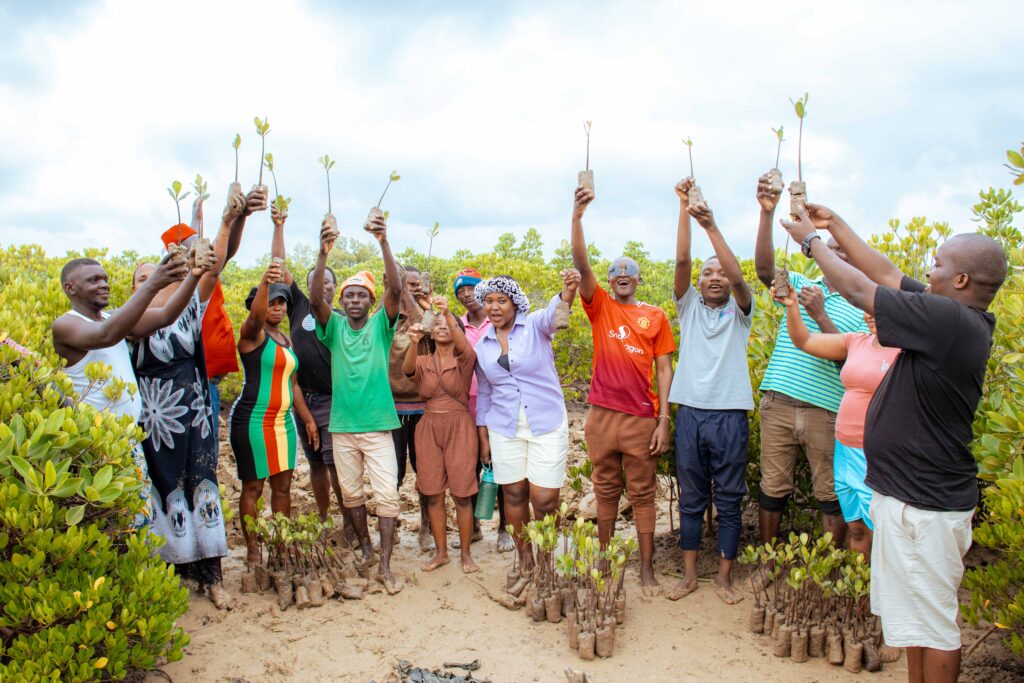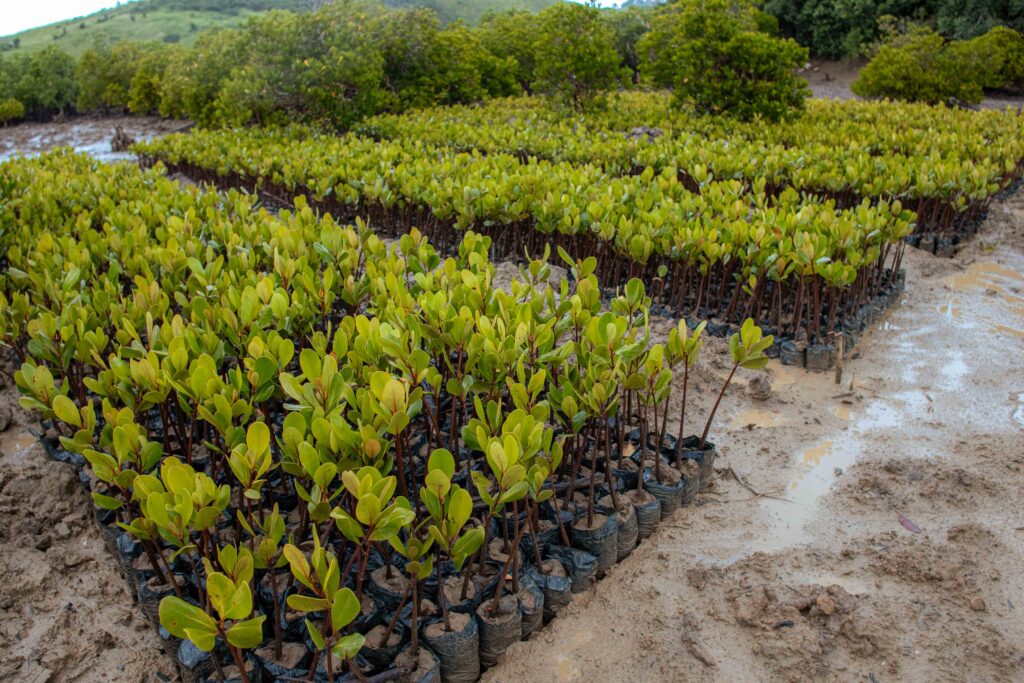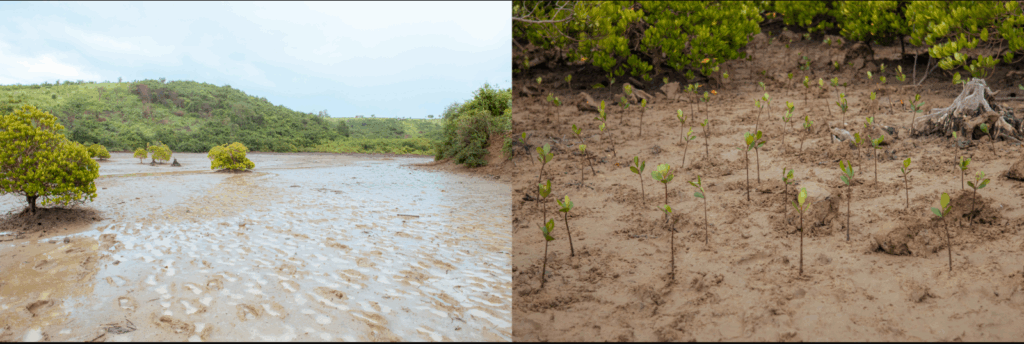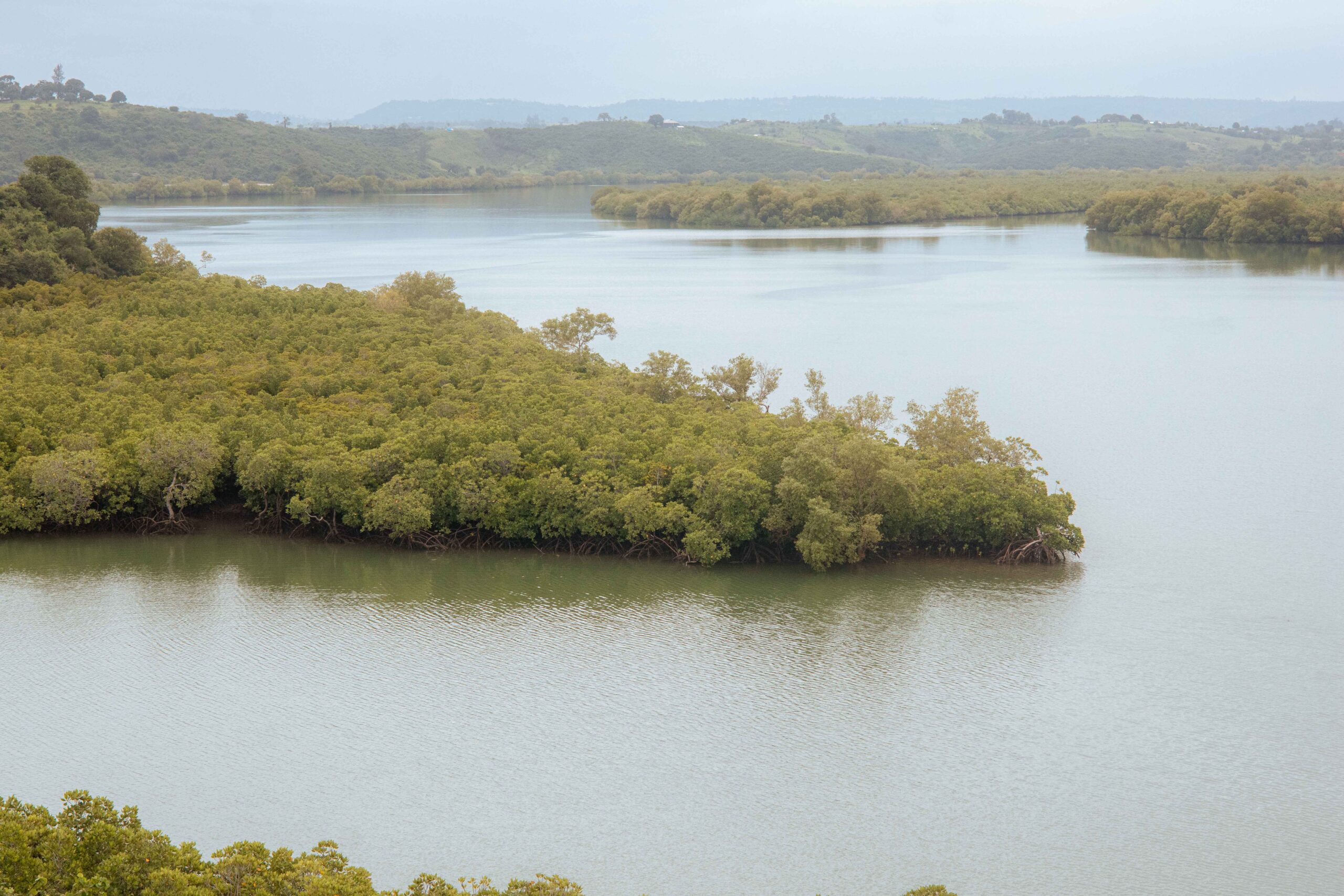
A Community-Led Turning Point
This past weekend marked a powerful turning point for coastal conservation in Mtwapa Creek, Kilifi County, as Naturehub Collective officially launched a new chapter in its mission to restore and protect Kenya’s fragile coastal ecosystems. With the sun rising over the mangrove-lined waters, the community gathered with one common goal—reviving the mangroves, restoring biodiversity, and creating sustainable livelihoods for generations to come.

2,500 Mangroves Planted for a Healthier Coastline

The launch was more than just a symbolic event—it was a hands-on, community-powered action. Spearheaded by the dedicated Kidongo Women’s Group, the initiative saw the successful planting of 2,500 mangrove seedlings in severely degraded sections of the creek. These trees, often referred to as “coastal guardians,” serve a critical role in preventing erosion, filtering pollutants, and offering breeding grounds for fish, crabs, and other marine life that coastal communities depend on for food and income.

Mangroves also play a significant role in mitigating climate change. Their ability to sequester carbon—up to five times more than terrestrial forests—makes them one of the planet’s most effective carbon sinks. For Mtwapa Creek, where human activity and climate pressure have degraded much of the original forest cover, the restoration effort brings renewed hope for resilience in the face of rising seas and unpredictable weather patterns.
The Livelihood Dilemma: “What Do You Want Us to Do?”

While the ecological importance of mangroves is clear, the reality for many local families is more complicated. For decades, residents around Mtwapa Creek have relied on burning mangrove wood for charcoal—not out of disregard for nature, but out of necessity. With few income opportunities, charcoal production has been one of the only available ways to put food on the table.
When we ask them to stop cutting down the mangroves, the answer is often painfully honest:
“What do you want us to do? We don’t have anything else.”
This question lies at the heart of why conservation efforts must go hand in hand with economic alternatives. Without viable livelihoods, communities will always be forced to choose survival over sustainability.
A Buzzing Solution: Beekeeping for Conservation

In response to this urgent need, Naturehub Collective is integrating beekeeping into mangrove conservation. As part of the project launch, we installed 8 modern beehives along the edge of the mangrove forest. This marks the beginning of a community-run honey enterprise, producing organic mangrove honey while creating jobs, especially for women and youth.
Beekeeping offers multiple benefits. It generates income through honey sales, promotes conservation by giving value to healthy ecosystems, and increases pollination in the surrounding vegetation. For communities previously dependent on charcoal, beekeeping provides a tangible, sustainable alternative.
Over time, this honey enterprise will be expanded with training, branding, and marketing support, ensuring that the community is not only protecting the forest—but profiting from it in a way that doesn’t harm the environment.
Supported by Seeds of Sustainability

This holistic approach was made possible thanks to the generous backing of the Ceiba Foundation’s Seeds of Sustainability program. Their support has provided the tools, training, and momentum needed to get the project off the ground. Their belief in grassroots solutions to ecological challenges aligns perfectly with Naturehub’s community-first philosophy.
By combining ecological restoration with economic empowerment, we are not just planting trees—we are planting seeds of lasting change.
Unity in Action: A Day to Remember

The energy at Mtwapa Creek during the launch was inspiring. Young people rolled up their sleeves and planted seedlings with care. Women from the Kidongo group took the lead, sharing their skills and pride in restoring their environment. Children played along the creek banks, watching and learning. Elders told stories of how the mangrove forest used to be—lush, vibrant, and full of life—and expressed hope that it might return to its former glory.
This Is Just the Beginning
At Naturehub Collective, we are more than an environmental organization—we are a movement for climate resilience, equity, and ecological restoration. We believe that real change happens when communities are empowered to take the lead. That means listening deeply, collaborating respectfully, and investing in solutions that work for both people and nature.
This project is only the beginning. In the coming months, we aim to:
- Plant thousands more mangrove seedlings
- Expand our sustainable honey enterprise
- Train and support dozens of local conservation leaders—especially young women
- Launch educational workshops on climate action, biodiversity, and environmental stewardship
We Will Not Stop

The mangrove revival is officially underway, and we are not going to stop.
Naturehub Collective remains fully committed to protecting coastal ecosystems, strengthening local economies, and building a conservation model that can be replicated across Kenya and beyond.
Together with the community, our partners, and supporters, we will continue to defend the mangroves, empower our people, and fight for a healthier planet.
🌱🌊🐝 The future is rooted here. And it’s growing.



